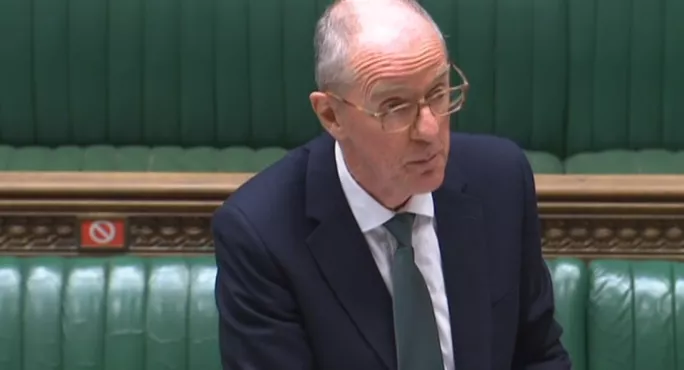Exam boards are still set to make╠²final checks on conduct╠²on teacher-assessed grades before GCSE and A-level results are published in three weeksŌĆÖ time, the schools minister has said.
Nick Gibb also revealed today that╠²reviews of teacher judgements╠²have been requested on ŌĆ£some occasionsŌĆØ, where questions have been raised over grading evidence.
The schools minister was addressing╠²MPs in the House of Commons following last weekŌĆÖs launch of the Department for Education and Ofqual╠²consultation on measures that could be taken to mitigate disruption to students sitting GCSE and A-level exams next year.
GCSEs 2022: DfE and Ofqual set out exam ŌĆśadaptationsŌĆÖ
Warning:╠²ŌĆśVery concerningŌĆÖ lack of plan B for exams
Exclusive:╠²Parents push teachers to raise GCSE grades
Other updates from todayŌĆÖs session included...
1. Most GCSE and A-level grades submitted and checked
Mr Gibb told MPs that╠²ŌĆ£more than 99.9 per cent╠²of all teacher-assessed grades have been submitted for this yearŌĆØ ahead of next monthŌĆÖs GCSE and A-level results days.
After submitting these grades, schools and colleges were asked to provide evidence to exam boards - a sample of which was checked to verify teachersŌĆÖ judgements.
Mr Gibb said more than 90 per cent of this evidence was submitted within 48 hours, and ŌĆ£the╠²process of evidence checking is almost completeŌĆØ.
ŌĆ£As of 21 July, 99.5 per cent╠²of centres have submitted the evidence requested,ŌĆØ he said.
2. Schools should teach ŌĆśfull curriculumŌĆÖ next year
Told by Lib Dem╠²MP Munira Wilson that teachers ŌĆ£want to focus their very precious face-to-face teaching time with pupils on parts of the syllabus that will definitely be assessed next yearŌĆØ, Mr Gibb stressed that the government will be asking╠²schools to teach the ŌĆ£full curriculumŌĆØ.
Ms Wilson╠²said:╠²ŌĆ£In my recent visits to secondary schools in Twickenham, Year 10 and 12 pupils have told me how anxious they are because of the lack of clarity around exams in 2022 -╠²whether theyŌĆÖll even go ahead, how they might be assessed, what they might be assessed on.╠²
ŌĆ£And teachers told me that with all the disruption, they want to focus their very precious face-to-face teaching time with pupils on parts of the syllabus that will definitely be assessed next year.
ŌĆ£So can the minister please commit to putting pupils, parents and teachers out of their╠²misery, by providing a clear steer on 2022 assessment, not sometime in the autumn╠²but by the beginning of September?ŌĆØ
He╠²responded:╠²ŌĆ£We have made clear, and the secretary of state has been very clear about this, that our plan is for exams to go ahead and we want schools to teach the full curriculum.
ŌĆ£The purpose of the adaptations is to make the exams as fair as possible for students and to give them the confidence in taking those exams, given the disruption that they have suffered over the past 16 months.ŌĆØ
3. Back to normal in 2023
While schools must wait for certainty on plans for 2022 exams, Mr Gibb made it clear that╠²the government is keen for a return to normality╠²the following year.
Responding to concerns that the incoming A-level cohort will never have taken exams, he╠²said: ŌĆ£Of course, this yearŌĆÖs Year 12 are people that have not have taken GCSEs and...all this was taken into account when we devised the adaptations that we have proposed for 2022.
ŌĆ£And I can give...the assurance that we will return to normal in 2023.ŌĆØ
And asked by Conservative MP Rob Butler╠²for reassurance that the plans will ŌĆ£mark an important step back to an exam regime that is both rigorous and fairŌĆØ, he said: ŌĆ£We do want to get our exams system back to normal as swiftly as possible.
ŌĆ£But I╠²believe that given the disruption students have suffered over╠²the last 16 or 17 months, that the adaptations that╠²we are proposing╠²together with Ofqual╠²in the consultation document we published on 12 July╠²are the fairest approach to exams in 2022, as a stepping stone to full normality in 2023.ŌĆØ





